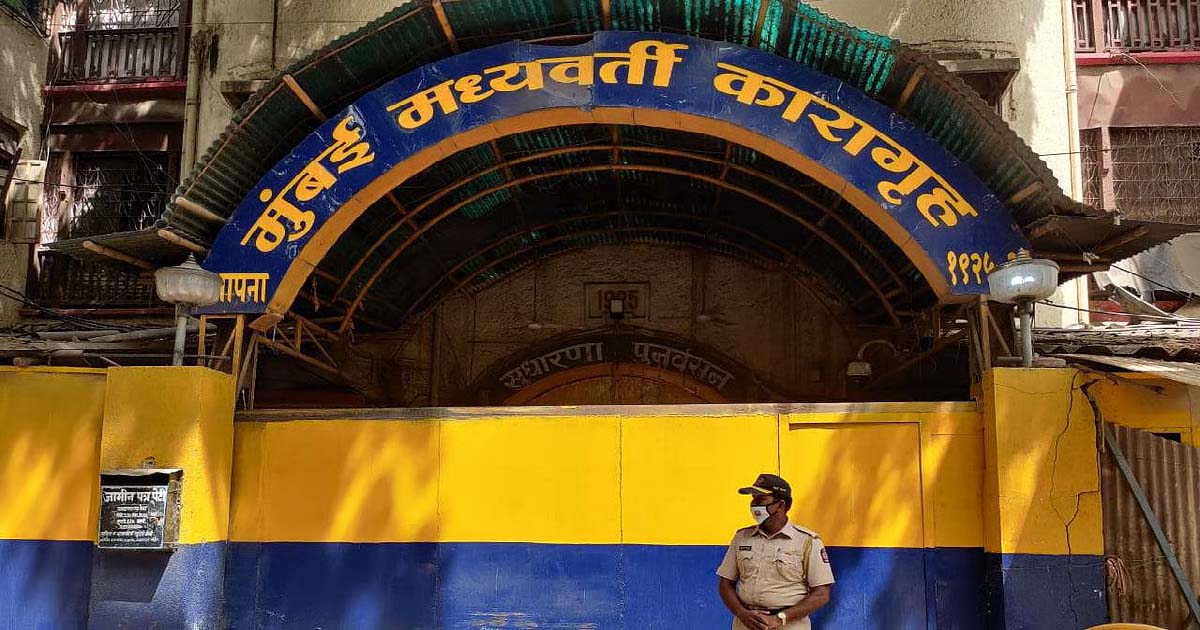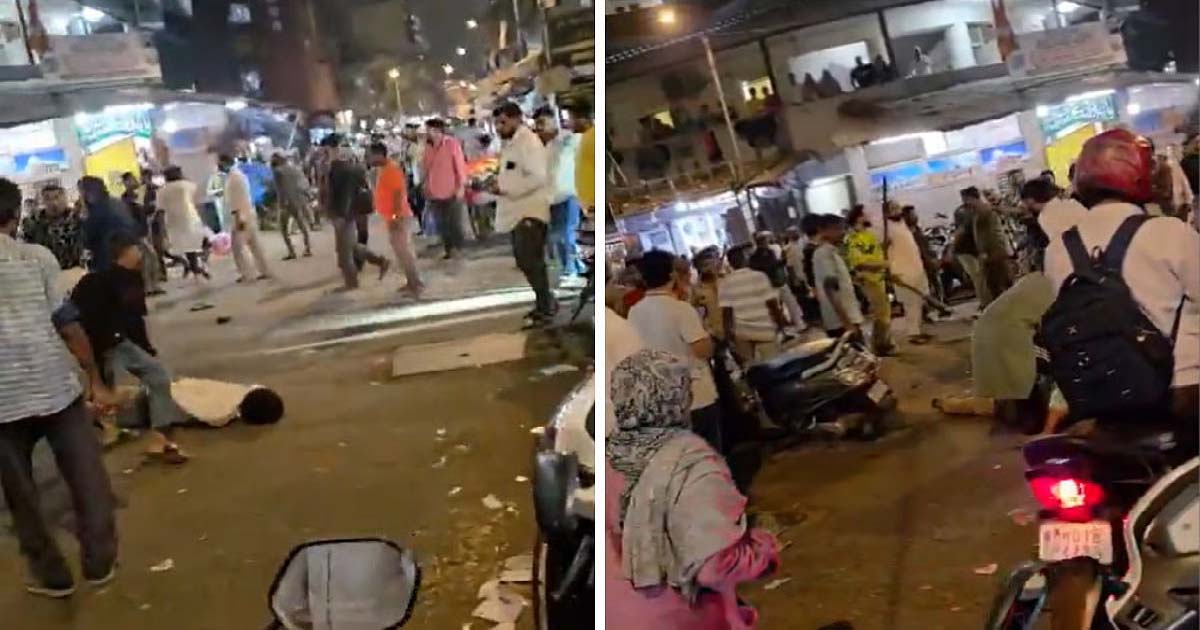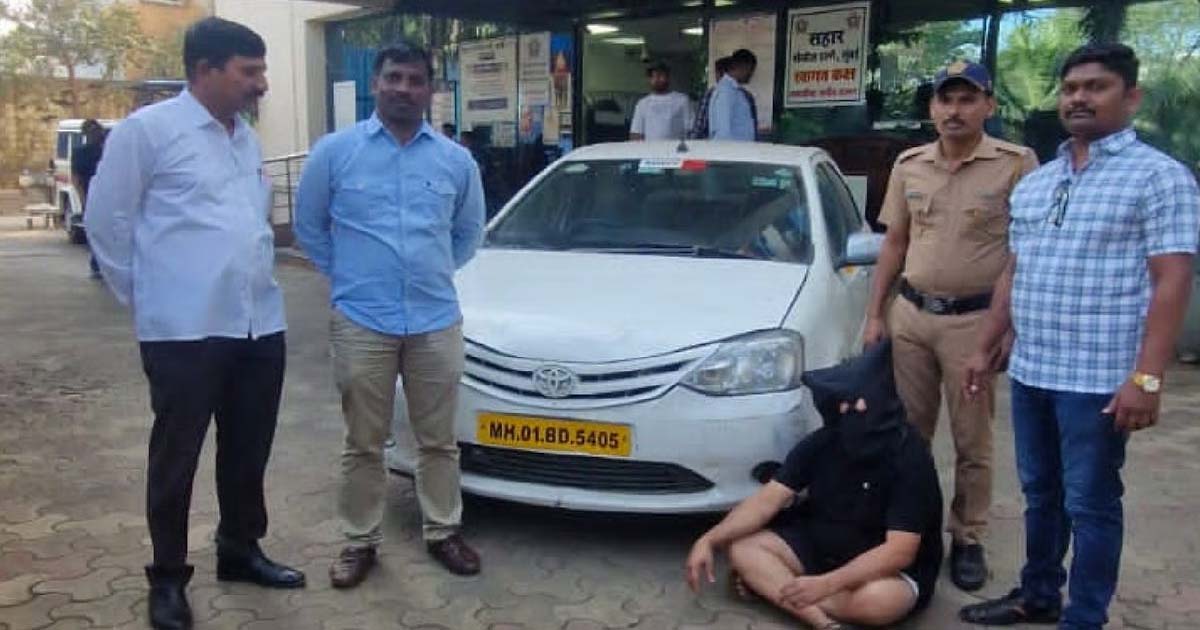Crime
If Pak govt does not agree to our demands, our fighters will wage jihad in entire country: TTP

The Pakistan Tehreek-e-Taliban (TTP) commonly known as Pakistan Taliban has accused Islamabad of sabotaging the ongoing peace negotiations. The proscribed group also warned that if its demands were not met, it would be forced to call off the indefinite ceasefire.
“If the Pakistan government wants to flee from meaningful negotiations, then we have no problem. We will wage a countrywide jihad,” the TTP said in a statement. The group also refused to hold talks under the framework of the Pakistani constitution, as it was not based on Sharia law.
“Our Mujahideen will have the opportunity to wage jihad in the country since freedom and sovereignty are our rights as are practicing our religious and national values” says the statement . It added that “TTP members will never give up arms and surrender.”
The TTP leaders also made it clear that their demand for reversal of FATA merger is non-negotiable and it was made clear to the negotiators of the Pakistani security establishment.
“They (Pakistan army) had assured us in the beginning of the fresh talks that demerger of the FATA region will be done and we will be free to implement Sharia laws in our land but if they want to back off, we will have no other option but to fight them off but we will never surrender or disarm and will continue to fight Pakistani security forces in case of no agreement.” In 2018, the Imran Khan government merged the FATA, a lawless tribal area into the more tightly administered Khyber Pakhtunkhwa province, curbing TTP’s free movement in the area.
The Pakistani Interior Minister Rana Sanaullah has termed the demands of the Tehreek-e-Taliban Pakistan (TTP) pertaining to the reversal of FATA merger and military withdrawal from tribal areas bordering Afghanistan as against the constitution, saying that “talks are possible with only those who are willing to surrender their arms”.
Referring to the Taliban’s Interior Minister and the “patron” of the TTP, Sirajuddin Haqqani’s participation in the ongoing talks, Sanaullah told the Pakistani army leadership that if “Afghanistan’s political leaders are participating in the talks, then politicians from our side will also take part in the negotiation.”
It may be recalled that the Pakistani establishment started the secret negotiations with the TTP on the assurances given by the Interior Minister of Taliban regime, Sirajuddin Haqqani that he would be using all his power to make the talks successful. However, it has been a month and the two sides have yet to find common ground on the main demands.
Earlier on Wednesday, the top military brass had briefed Prime Minister Shehbaz Sharif led civilian government and had assured the political leadership that no extra-constitutional concessions would be given to the militants and any deal arrived at would be subject to parliamentary approval. The meeting, the first of its kind since the coalition government came to power, was called after the many coalition partners including PPP protested that the civilian leadership was being sidelined in the ongoing negotiations with the militants.
According to sources, the former ISI chief and the Corp Commander of Peshawar Faiz Hameed who is the chief negotiator from the army side was questioned about the “secret” talks by the government. He was told that there is no question of “pardoning” the hardcore militants of the TTP who have been sentenced to death or lifer by the Pakistani courts.
Pakistani watchers say the latest statements by the TTP are nothing but attempts at gaining time to regroup their cadres.
“Talks with TTP are destined to fail as militants are openly declaring to not submit to the constitution. Even today, TTP is threatening to attack Pakistan and the Pakistani army is silent. It is very shameful.” said Rana Shabbir Hussain, a Pakistani analyst.
Some Pakistani watchers believe that the Pakistani security establishment has been committing blunder after blunder in its approach to deal with the TTP.
“They (Pakistan army) have been refusing to learn from its past mistakes. They have been relying too much on Afghanistan and Allah. Do not know about Allah, but too much reliance on Afghanistan (The Taliban) will backfire.”
Crime
Mumbai Crime: Undertrial Prisoner Assaults Policeman Inside Arthur Road Jail, Case Registered

Mumbai: A shocking incident has come to light from Mumbai’s Arthur Road Jail, where an undertrial prisoner allegedly assaulted a police constable on duty.
The accused, Lokendra Uday Singh Rawat (35), is reported to have headbutted Police Constable Hani Baburao Wagh (30), causing injuries to his nose, and also abused and pushed other on-duty police personnel. A case has been registered in this connection at the N. M. Joshi Marg police station.
According to the FIR, the complainant, Police Constable Wagh, is attached to Armed Police Division–2, Tardeo. On January 27, he reported for his 24-hour day-duty shift at Arthur Road Jail at around 8 am and was assigned security duty at the main entrance of the prison.
At around 9 pm, Armed Police Constables Suresh Sandu Mali and Sachin Chavan brought undertrial Lokendra Rawat back to the jail after producing him before the Dindoshi Court. Rawat allegedly appeared agitated and, after entering the jail premises, sat near the gate and began verbally abusing the police personnel on duty.
Constable Wagh asked Rawat to calm down and refrain from using abusive language. However, Rawat allegedly became more aggressive and continued shouting abuses. When Wagh approached him again to pacify the situation, Rawat suddenly headbutted him on the nose with force.
As a result, Constable Wagh sustained injuries and started bleeding. Fellow constables Sachin Chavan and Suresh Mali immediately intervened, restrained the accused, and informed the on-duty prison authorities about the incident. Rawat was subsequently sent for medical examination to Sir J.J. Hospital.
After receiving medical treatment, the injured constable lodged a formal complaint on January 28 at the N. M. Joshi Marg police station. Based on the complaint, police have registered a case against the undertrial under relevant sections of the Bharatiya Nyaya Sanhita (BNS). Further investigation is ongoing.
Crime
Mumbai Crime: One Critical Among 5 Injured After Violent Group Clash Breaks Out In Nagpada, 13 Detained

Mumbai: A violent confrontation between two groups erupted in South Mumbai’s Nagpada area late Thursday night, leaving several people injured and sparking a massive police response. Authorities have confirmed that one individual remains in critical condition following the brawl, which has once again put the spotlight on the volatile security situation in the densely populated area.
According to the Mumbai Police, the altercation broke out between two local groups over a financial dispute that escalated rapidly. What reportedly began as a verbal spat soon turned into a physical battle.
A video of the clash has surfaced on the internet shows the exact moments of the violent situation. Two men can be seen lying on the road, probably unconsious after participating in the brawl. Five to six other men can be seen weilding rods and sticks engaged in a fight, in full public view.
The violence resulted in five to six individuals sustaining serious injuries. They were rushed to a nearby hospital for emergency treatment. Medical officials confirmed this morning that while most are stable, one victim is currently in critical condition and is battling for life in the intensive care unit.
The Nagpada Police arrived at the scene shortly after the violence peaked to disperse the crowd and restore order. Heavy police deployment remained in the area throughout the night to prevent any retaliatory attacks or further communal or localised tension.
In a swift crackdown following the incident, the Mumbai Police have detained 13 individuals suspected of involvement in the clash. The police have officially registered a case against the accused parties under various sections of the Indian Penal Code (IPC), including Section 109 and Section 191.
As of Friday morning, the situation in Nagpada is reported to be under control, though an uneasy calm prevails. Security has been beefed up at key intersections, and patrolling has been intensified.
Crime
Mumbai Crime: 50-Year-Old Taxi Driver Arrested For Cheating American National Of ₹18,000 For 400-Metre Ride Near Airport

Mumbai: The Sahar Police on January 28 arrested a taxi driver for allegedly defrauding an American national of Rs 18,000 for a taxi ride of just 400 metres.
The accused has been identified as Yashraj Yadav alias Papuu (50). The police have seized the vehicle, and the accused is currently in judicial custody. Two accused were involved in the crime. One is Yadav, while his associate, Taufiq Shaikh, is absconding.
The case came to light after a social media post by the American national, Argentina Ariano, went viral. In her post, she alleged that she was scammed by a taxi driver shortly after arriving in Mumbai.
According to the police, the victim had arrived in India for work. The incident took place on January 12 at around midnight after she landed at the Mumbai International Airport.
She alleged that the taxi driver charged her Rs 18,000 for a trip to a hotel located barely 400 metres away. Yadav allegedly took the woman on a 20-minute drive in Andheri (East), returned to the same locality, dropped her at the hotel and collected the fare.
Nearly 15 days later, on January 26, she posted about the incident on social media. In her post, she wrote: “Landed in Mumbai recently, took a taxi to the Hilton Hotel. The driver and another man first took us to an unknown location, charged us $200 (Rs 18,000), and then dropped us at the hotel, which was only 400 metres away. Taxi No: MH 01 BD 5405.” She tagged Mumbai Police and the Traffic Police and used the hashtag #scam.
Responding to the post, Mumbai Police replied, “We have followed you. Please share your contact details in DM.” Following this, the Sahar Police initiated an inquiry.
During the investigation, police found that there are three Hilton hotels near the airport and identified the exact hotel where the American national had stayed. However, within 12 to 13 hours of the incident, she had checked out of the hotel and left the country. She checked out the next day and went to Pune, from where, after completing her tour, she returned to the US.
Manoj Chalake, Senior Police Inspector of Sahar Police Station, said, “We are trying to get the victim’s statement via video call or email. She did not inform the hotel staff about the incident. We have repeatedly informed people to communicate with the hotel or the local authority if a tourist suspects that a cabbie is fleecing them.”
The police contacted her and requested her to file a formal complaint. Although she responded with “Okay”, she did not lodge any complaint.
The Sahar Police then registered a suo motu case on January 28 against an unknown taxi driver under Sections 318(4) (cheating) and 3(5) of the Bharatiya Nyaya Sanhita (BNS) and launched a search operation.
Using the taxi number mentioned in the post, police traced the accused, Yadav, who resides in Sahar Village and is a permit taxi driver. The vehicle, a white Toyota Etios, has been seized. The vehicle is registered under the S.M.S. Tours and Travels company. Police said they would send his details to the Regional Transport Office (RTO) for cancellation of his licence.
A police officer said two persons were involved in the crime — Yadav and his associate, Taufiq Shaikh, around 50 years old. Yadav allegedly negotiated the fare with the foreign national and then called Shaikh, who arrived with the car. Both allegedly cheated the tourist.
Shaikh later took the money from Yadav and fled to Uttar Pradesh. Police records show that several cheating cases have been registered against Shaikh at various police stations. Yadav, however, has no prior criminal record.
Manoj Chalake added, “We have seized the car. The cash could not be recovered as the other accused took the money and fled. We are searching for him. We will soon call the company owner for a statement.”
He further said that the police do not have much information about the foreign national, as she has not provided details about the purpose of her visit or other relevant information.
The Metropolitan Magistrate Court initially remanded Yadav to one day of police custody and later sent him to judicial custody.
-

 Crime3 years ago
Crime3 years agoClass 10 student jumps to death in Jaipur
-

 Maharashtra1 year ago
Maharashtra1 year agoMumbai Local Train Update: Central Railway’s New Timetable Comes Into Effect; Check Full List Of Revised Timings & Stations
-

 Maharashtra1 year ago
Maharashtra1 year agoMumbai To Go Toll-Free Tonight! Maharashtra Govt Announces Complete Toll Waiver For Light Motor Vehicles At All 5 Entry Points Of City
-

 Maharashtra1 year ago
Maharashtra1 year agoFalse photo of Imtiaz Jaleel’s rally, exposing the fooling conspiracy
-

 National News1 year ago
National News1 year agoMinistry of Railways rolls out Special Drive 4.0 with focus on digitisation, cleanliness, inclusiveness and grievance redressal
-

 Maharashtra1 year ago
Maharashtra1 year agoMaharashtra Elections 2024: Mumbai Metro & BEST Services Extended Till Midnight On Voting Day
-

 National News1 year ago
National News1 year agoJ&K: 4 Jawans Killed, 28 Injured After Bus Carrying BSF Personnel For Poll Duty Falls Into Gorge In Budgam; Terrifying Visuals Surface
-

 Crime1 year ago
Crime1 year agoBaba Siddique Murder: Mumbai Police Unable To Get Lawrence Bishnoi Custody Due To Home Ministry Order, Says Report












